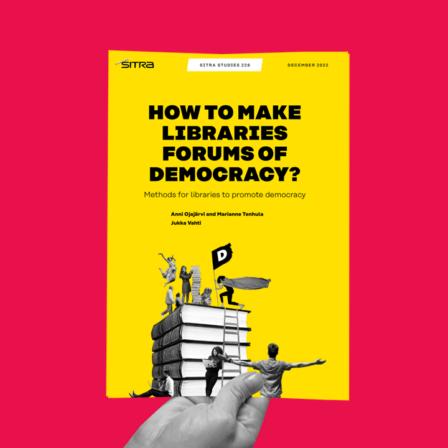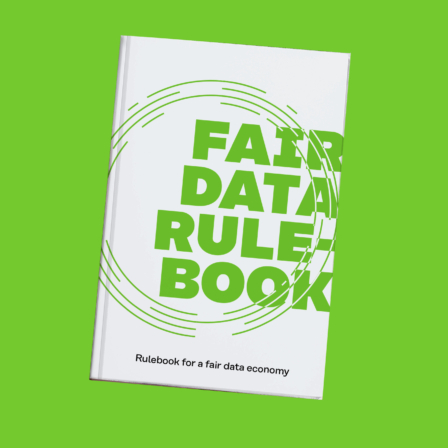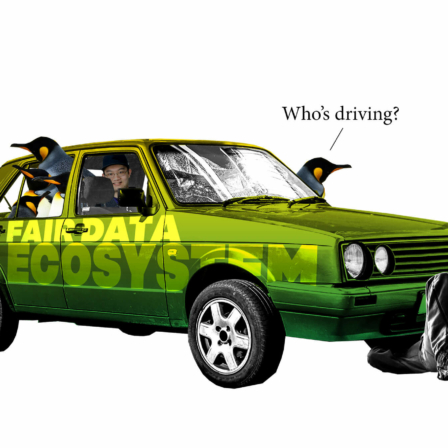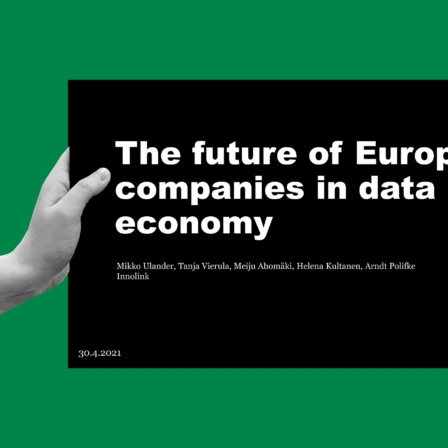A rapidly changing media environment risks eroding the foundations of democracy both in Finland and globally. Steps can be taken to mitigate these risks, but measures are needed urgently. This is the assessment of a recent Sitra report on the impact of social media on democracy. The report is entitled “Mediavälitteinen yhteiskunnallinen vaikuttaminen – Murros ja tulevaisuus” (“Media-mediated societal influence – a transition and the future”, you can find the summary in English on page five of the report).
The polarisation of public debate and the subsequent issue of people’s trust in democracy have been widely debated talking points for some time, brought to a head most recently by the unrest surrounding the presidential election in the United States. The scenes in the US Capitol and the reaction to the attack have further highlighted concerns about the future of democracy, concerns that have been present since 2016 and the widely publicised suspicions about electoral manipulation during the election of Donald Trump as US President and the British Brexit referendum.
“There is still huge potential for democracy on social media, but the prevailing trends are steering development in the wrong direction,” says Hannu-Pekka Ikäheimo, Specialist at Sitra. “Power is centred on large technology companies, which, despite their promises, have not managed to stem the dissemination of false information. Incentives for seeking attention on social media have fed hatred and led to irritation to the extent that the willingness to participate in public discussion is reducing.”
Media literacy is no longer sufficient in the new media environment
According to Ikäheimo, the risks to democracy posed by social media can be managed, but this requires conscious action from political decision-makers, social media giants and individuals alike. Necessary measures would include regulating content, increasing the responsibility of social media companies, standardising the quality of content and opening up markets to make it easier for all of us to transfer our personal data and our network from one service or platform to another. In addition, changes in thinking and operating methods are also needed.
“Along with traditional media literacy, there should be an emphasis on the importance of critical technology literacy,” says Ikäheimo. “This requires a more comprehensive approach than basic media literacy to an era in which the boundaries between the media and the audience, and between the influencer and the person being influenced, and digital and physical boundaries, are all becoming increasingly blurred.”
Global phenomena reflected in Twitter communication by Finnish parliamentarians
The report on media-mediated societal influence is part of Sitra’s Updating Democracy project, which supports the capacity for renewal of Finnish democracy by conducting various studies and experiments. The report analyses, by using theory and practical examples, how societal influence through the media has changed and will possibly change in the decade to come.
One of the examples presented in the report is an analysis of Twitter communications by Finnish parliamentarians between March 2019 and March 2020. According to the analysis, the global fundamental factors of social media and the valuations written into the algorithms can also be seen in the tweets of Finnish politicians: it is considerably easier to arouse reaction by having a go at somebody and by campaigning than by highlighting important but everyday themes of politics and decision-making. The analysis also reveals how the styles and means used by parliamentarians representing different parties differ from each other and which members of the parliament were the most prolific and most influential tweeters during the period under examination.
Leading Specialist Jukka Vahti from Sitra says that changes in communication technology over the centuries – from the advent of printing to telegrams, newspapers, radio and television – have always led to new ways of exerting influence and redistributing power. This is also the case in the current digital transformation, which is only just beginning.
“In the current media environment, causing a stir, aggravating an issue and fuelling a confrontation work because algorithms are designed to reward them with visibility. However, the current social media platforms and their operating models – or our current discussion culture – are not the end of development. For this reason, it is important right now that together we imagine and develop alternative futures, media environments and forms of participation, through experiments if necessary, so that we will not remain prisoners of our current future prospects, which are rather dystopic and which dominate our outlook on the future at the moment.”
The report examines possible future developments in the media environment and in media-mediated societal influencing from the perspective of 2030. It concludes that it will be essential to manage the regulatory environment for digital platforms and markets while at the same time promoting constructive discussion about culture and participation. Sitra’s projects have sought to tackle the challenges posed by declining participation and the concerns about media regulation by building the foundations of a fair data economy and developing the Timeout method to support constructive societal discussion, among other things. In addition, new ways of participation are being developed in experiments funded and launched by Sitra across Finland. Read more about these experiments: Demokratiakokeilut 2020 (“Democracy experiments” 2020”), Robottipuhelut kunnissa -hankekokonaisuus (“Robot calls in municipalities project”) ja Kirjastoista kansanvallan foorumeita -hanke (“From libraries to forums of democracy”).
The report is part of Sitra’s Updating Democracy project, which has previously supported the capacity for renewal of the Government, Parliament, parties and municipalities from the perspective of decision-making structures, operating methods and participation through studies and experiments. As a result of the work, the following reports have been published: Updating Democracy working paper, Miten tietoa käytetään päätöksenteossa -selvitys (“How information is used in decision-making” survey), Valtioneuvoston ydin Suomessa – Miten varautua paremmin tulevaan -muistio (“The core of the Government in Finland – How to better prepare for the future memorandum”) and the survey that studied the different Finnish participant profiles Suomalaiset kansalaisvaikuttajina -selvitys (“Finns as civic influencers”).



















Recommended
Have some more.